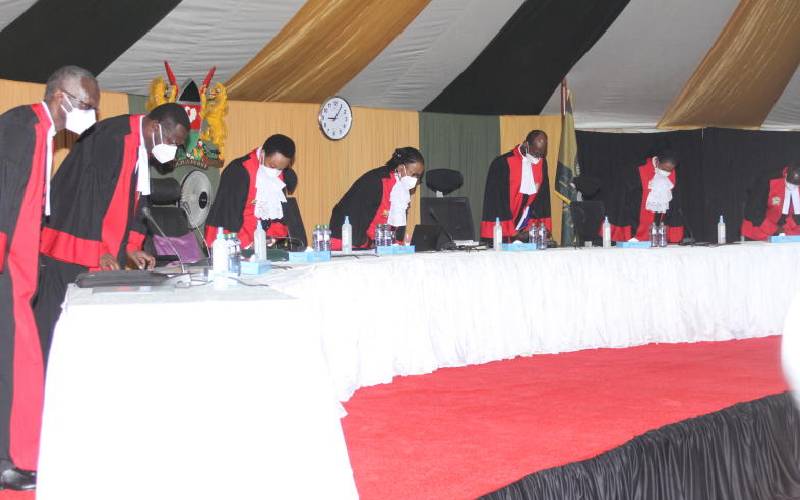×
The Standard e-Paper
Join Thousands Daily

Supreme Court Judges during the reading of the BBI verdict at the Supreme Court building on March 31, 2022. [Collins Kweyu,Standard]
The decision by the Supreme Court on Thursday to stop President Uhuru Kenyatta’s constitution amendment initiative has affirmed the public’s confidence in the Judiciary, and put focus on Chief Justice Martha Koome as the August election comes into view.